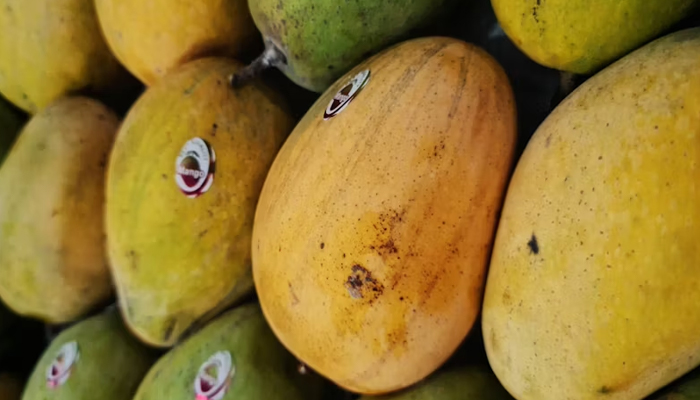Pakistan earned $46.7 million in mango exports, says commerce ministry
UK was largest importer of Pakistani mangoes this year as it bought $13.2 million worth of fruit, says ministry
Pakistan, in the current financial year, earned $46.7 million in mango exports, the Ministry of Commerce on Friday revealed in a report presented before the National Assembly.
According to the ministry, Pakistan exported the sweet tropical fruit to at least 42 countries around the world with 13,681 metric tons of export volume.
In the lower house session today, the commerce ministry said the United Kingdom was the largest importer of Pakistani mangoes this year with the country buying the fruit worth $13.2 million followed by the UAE at $9.2 million.
Other countries that imported the sweet tropical fruit from Pakistan included Germany, Saudi Arabia, Turkey and Qatar.
Germany bought at least $1.9 million worth of the fruit, Oman imported mangoes worth $1.7 million, Saudi Arabia stood at $1.3 million, while mangoes worth $2.2 million were also exported to Afghanistan.
The exports from the aforementioned countries collectively accounted for at least $4.4 million.
Earlier this year, the All Pakistan Fruit and Vegetable Exporters Association (APFVEA) feared Pakistan wouldn't meet its export target for mangoes owing to the impact of climate change in the country.
APFVEA patron-in-chief Mian Waheed Ahmed was of the view that the effects of climate change emerged as the biggest threat to mango production, which could be gauged from the fact that mango production had declined for the third year in a row.
Pakistan produces 1.8 million metric tons of mangoes and of that, 70% is produced in the Punjab, 29% in Sindh and 1% in Khyber Pakhtunkhwa.
Due to climate change this year, however, the production of the fruit in Punjab was 35% to 40%, while in Sindh it was less than 20%. Therefore, the total production was feared to be reduced by 600,000 metric tons.
Speaking with The News in July this year, Ahmed said long winters, rains and hailstorms followed by a severe heatwave have changed the pattern of agricultural diseases with the season.
-
Security forces gun down 30 terrorists in multiple IBOs in KP: ISPR
-
MQM-P calls for new province in Sindh
-
US report validates Pakistan military edge over India: PM
-
Banned TTP poses serious threat to Pakistan security: UNSC panel
-
CM Afridi clarifies remarks on by-poll after ECP requests army deployment
-
Dubai sees 3.2m Pakistani passengers in 2025 as airport sets new milestone
-
Security forces kill 23 Indian proxy terrorists in KP's Kurram
-
Pakistan to construct island to boost oil exploration: report












